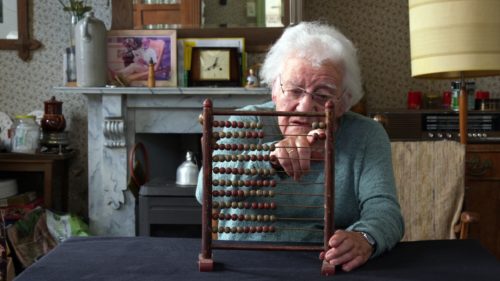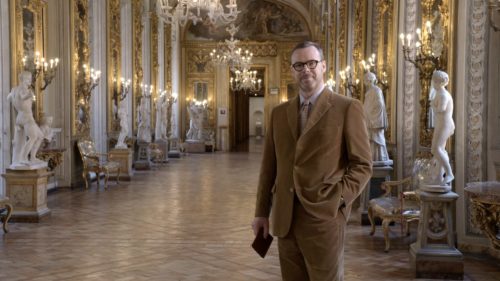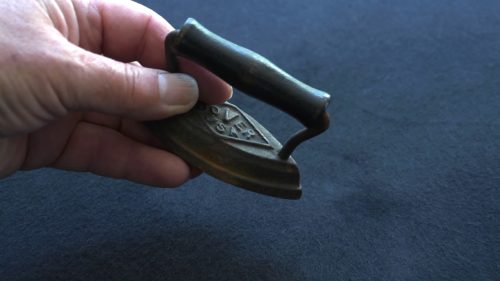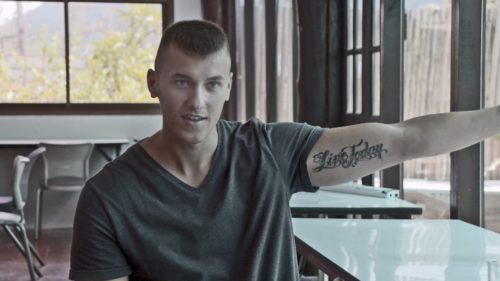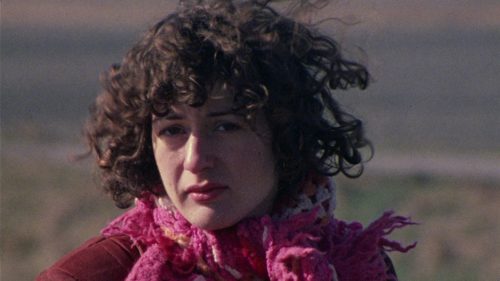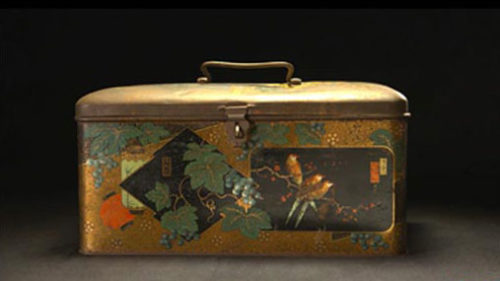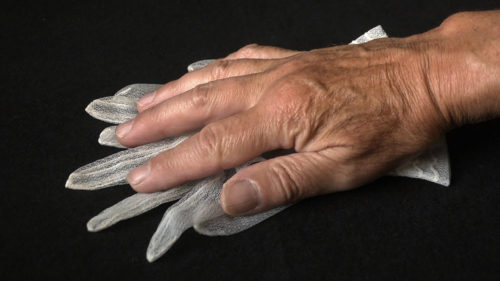KEEPING & SAVING OR HOW TO LIVE
Synopsis
For as long as I can remember I have been keeping things. Carefully I put my treasures away in an old metal tea tin. They could be anything: train tickets, a lipstick sample, a homemade chicken bone bracelet, a nice marble.
This need never went away. These days I also keep images: an old boat lift in Germany, a cloud above Bali at nightfall.
It’s obvious where I got it from. My parents always kept lots of things. Together with my 92-year-old mother I am trying to find out why we do this. Of course she keeps all kinds of stuff because it may one day come in handy. But often there is an emotional reason. When I show my mum her old toy flat-iron (which she may not have seen for 80 years) she recognizes it instantly, happy to see it again. Just for a moment she looks like a four-year-old girl again, proud to iron her own little handkerchief. The kept objects are like time machines. They can evoke memories that have all but faded.
Ab and Hennie’s place is cluttered. In Ab’s little study there are small aisles in between high piles of stuff. Hennie thinks it’s oppressive, but Ab disagrees. To him it’s his external memory.
Recently they got assistance from a tidying coach to help Ab create some more space.
A city palace in Rome is the home of Prince Jonathan Doria Pamphilj. He too keeps all kinds of things, and he speaks about it as lovingly as my mum does. But the majority of his possessions are special, precious, unique objects. He sees it as his task to keep them safe. This is cultural heritage, this is European civilization.
Through personal observations I try to portray this whole territory of considerations, thoughts, feelings, responsibilities. Why do I save those piles of old newspapers? Picture frames found in the street? Damaged lantern slides? Is it because keeping things gives me a feeling of attachment and familiarity? Because it connects me to people who are no longer there, to another era, to the world?
But something is changing. My cousin Maartje says she is like most people of her generation. Her living room is tidy. No stuff anywhere. No bookcase, no CD’s, her photographs are in “the cloud”. She keeps one little box of things from her childhood.
Perhaps we are in the middle of a change of paradigm. Whereas for thousands of years material possessions determined who we were, digitization has now created the possibility of a completely different way of life.
I am going in search of this new human, who no longer cares about possession, but about experience instead. Remote workers, digital nomads and minimalists show me that all they possess is a passport, a bank card, a laptop computer and a smartphone. They travel around the world as the internet enables you to do your work anywhere. Getting rid of all their things has given them the freedom they were looking for. They only live in the here and now and are extremely happy. Talking to them – in Bangkok, Bali, Missouri or Lisbon – I try to find out what their life is like, without responsibilities, without attachments. And how a whole new kind of society is coming into being, of vloggers, bloggers, influencers, followers and location independent workers. Maybe we are in the middle of a paradigm shift.
